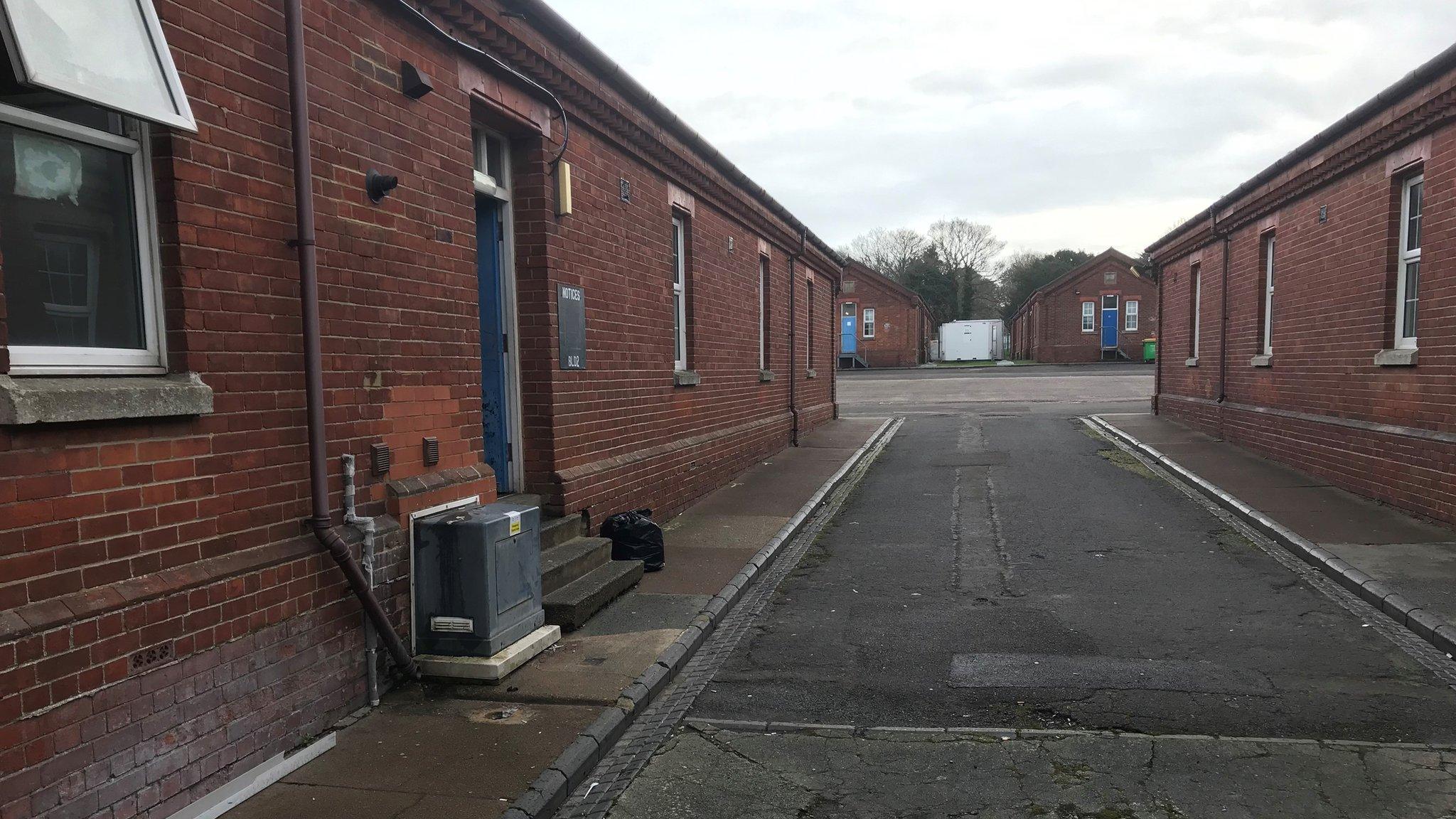Napier Barracks asylum seeker site 'can continue for five years'
- Published
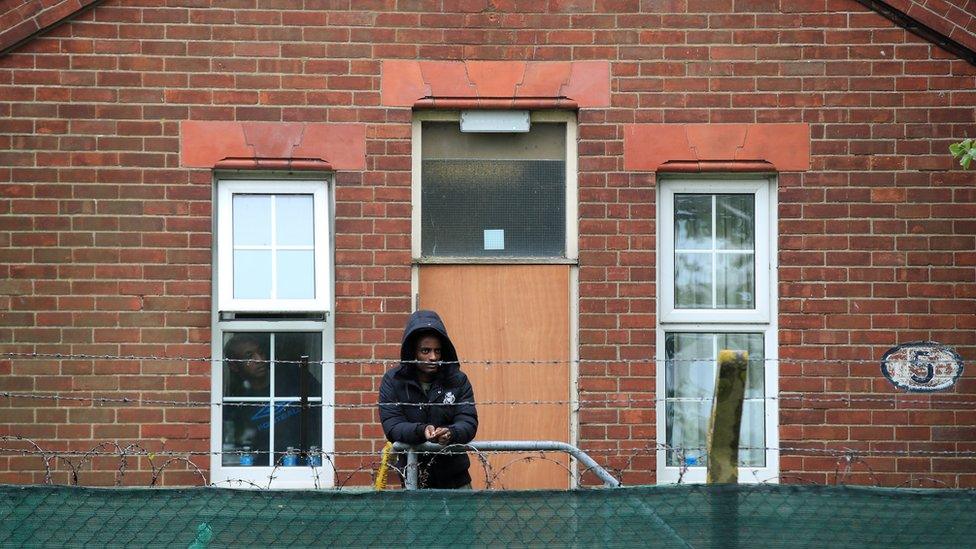
In June, a High Court judge criticised the use of detention-like facilities
A former military barracks can be used to house asylum seekers for a further five years, the Home Office has said.
The government had previously not confirmed plans for Napier Barracks in Kent beyond next month.
Calls for the site to close came after a Covid-19 outbreak led to nearly 200 infections, and both a High Court judge and inspectors criticised conditions.
The Home Office said use of the site in Kent would remain under review and conditions had significantly improved.
It said a special development order, external would be used to allow the site to house destitute asylum seekers.
However, government officials said people who travelled to the UK through safe and legal routes, such as the Afghan Relocations and Assistance Policy or Afghan Citizens' Resettlement Scheme, would not be housed there.
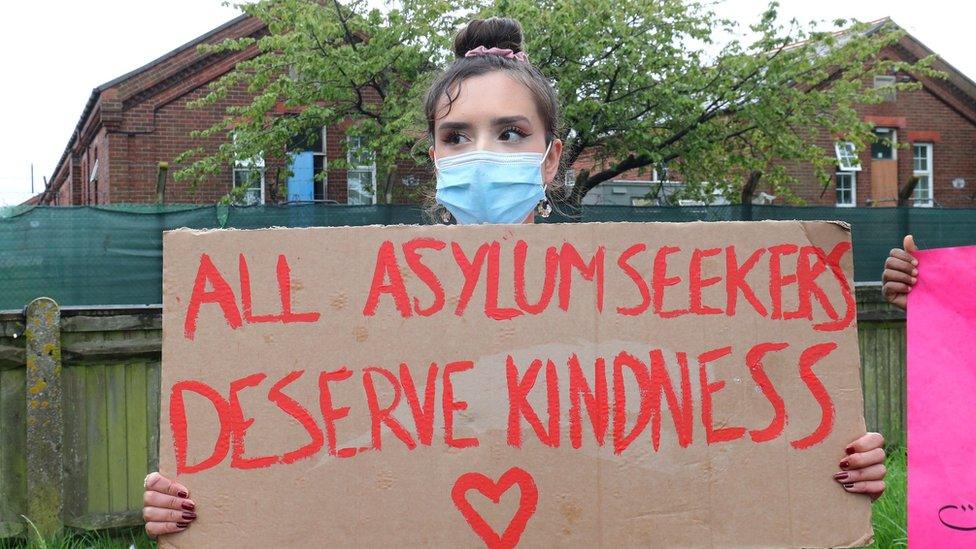
The site has seen repeated protests in support of those housed there
Folkestone council, which views the site as unsuitable, said the decision was "disappointing".
Councillor Jenny Hollingsbee, deputy leader and cabinet member for communities, said the authority had not had any role in the decision because the government was using special planning regulations.
"We have not changed our initial view that Napier Barracks is not the right place," she said.
Kevin Foster, minister for future borders and immigration, said the "unprecedented and unacceptable rise in dangerous and illegal small boat crossings and the Covid-19 pandemic" continued to put pressure on the asylum system."
He said: "We must ensure we have sufficient capacity to meet our statutory duty."
A damning inspection report this year said the barracks were run-down and filthy with one block "unfit for habitation".
In June, a High Court judge found the accommodation failed to meet minimum standards and said using it to house migrants was unlawful.
The Home Office said the site now had improved accommodation, more recreational and outdoor activities, with additional coronavirus tests and reduced capacity.

This year, inspectors said a "decrepit" isolation block was unfit for habitation
Steve Valdez-Symonds, Amnesty International UK's refugee and migrant rights director, described the decision as "another profoundly depressing example of the Home Office's institutionalised inhumanity toward people who seek safety and refuge".
He said it was clear from numerous reports and eyewitness accounts that conditions at Napier Barracks were entirely unsuitable.

Follow BBC South East on Facebook, external, on Twitter, external, and on Instagram, external. Send your story ideas to southeasttoday@bbc.co.uk.
- Published3 June 2021
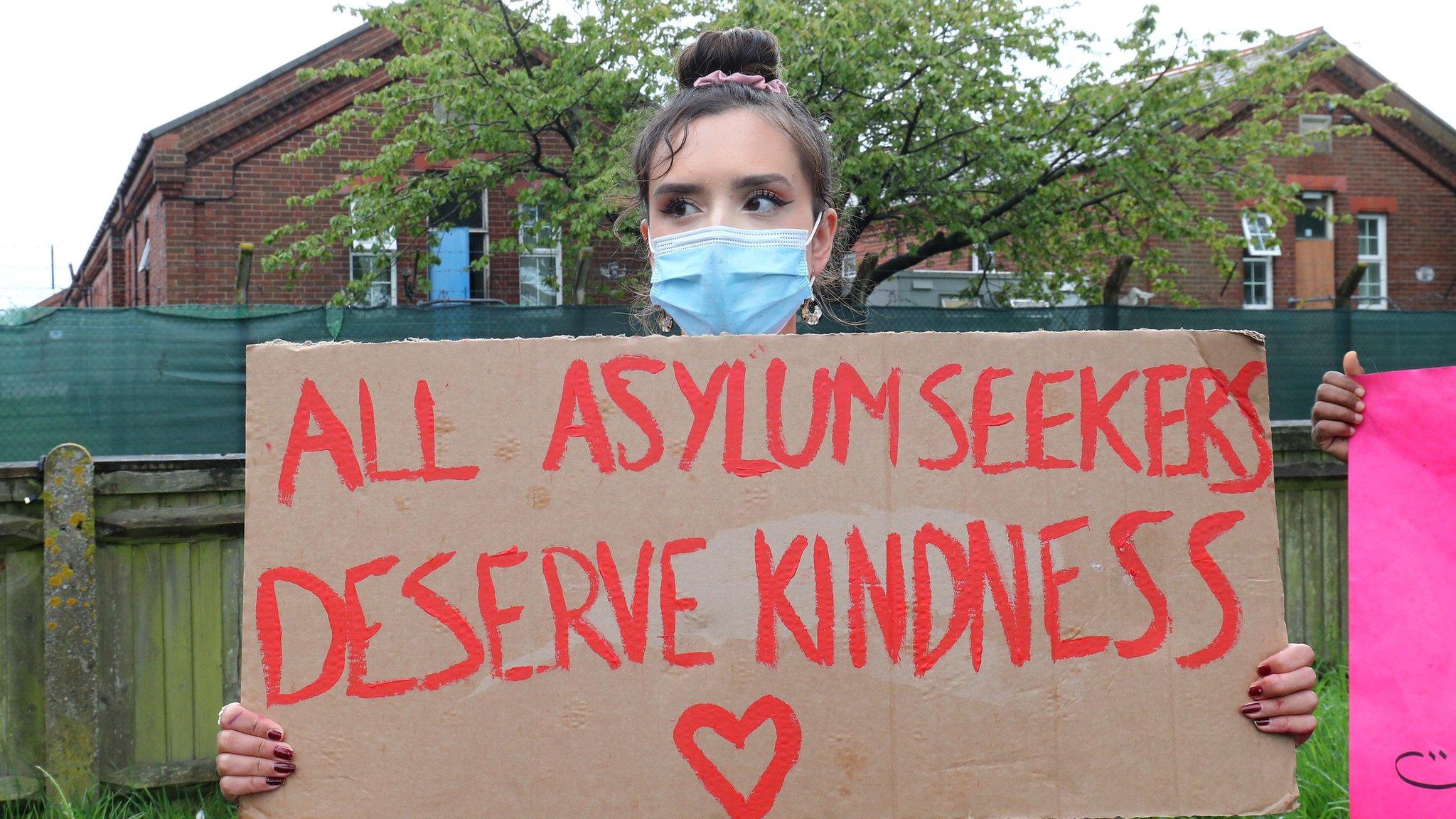
- Published3 June 2021
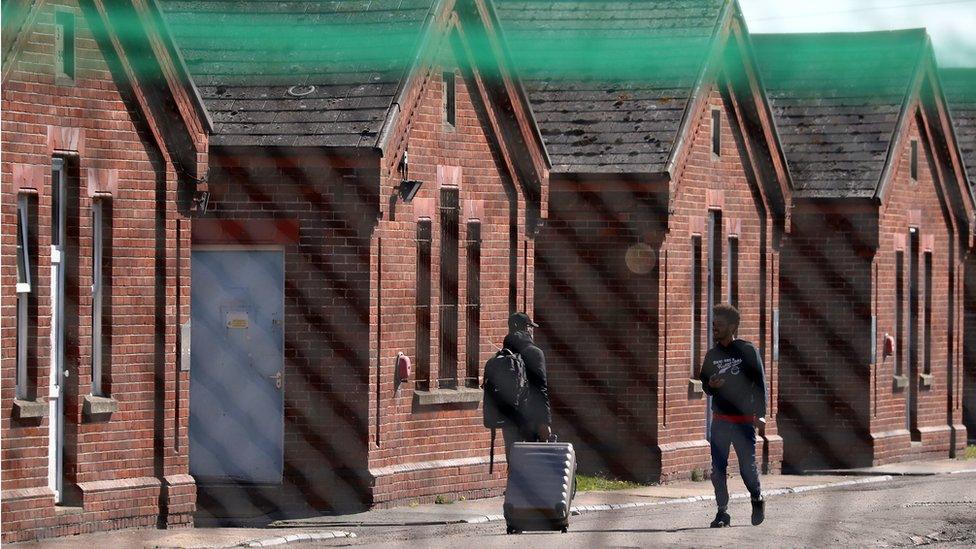
- Published8 March 2021
